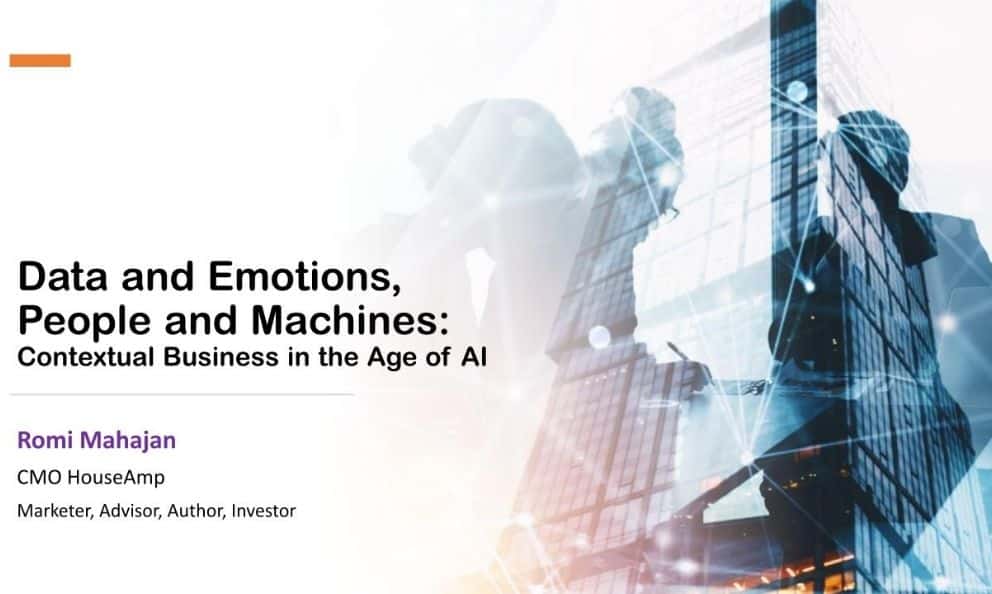 Reading Time: 3 minutes read
Reading Time: 3 minutes readQuestionPro had invited Romi Mahajan, CMO, HouseAmp to XDay on October 26, 2021 to share his thoughts on the importance of data in business and how it should be used to gain insights while considering human emotions as well.
Here’s a quick recap in case you missed it! You can also watch the full session here.
Romi started off talking about AI, the hype surrounding it and the businesses who use AI. Talking about its uses and benefits, he touched the people’s perception of AI. He added how marketing teams and media made us all believe that AI is the most revolutionary concept that one ever applied in the business world. He believes that almost anyone who uses data claims to be an AI or machine learning company. One would also believe that being efficient is good and so, automation is very important for your company.
Although you would hear that AI, machine learning, automation and digital transformation are crucial for your business, most organizations emphasize the importance of empathy in their business. They say they are people-centric companies. As it is evident, there are massive contradictions between their various claims. The confusion is over whether the organizations are machine-first or people-first in the new world of business. It is not clear whether automation is important or human-led engineering. Similarly, there are doubts about what is more important – innovation or efficiency and do we work with data and emotions both. We are also not sure about if we should lead with empathy or just focus on profits.
As marketers, market researchers, product developers and salespersons, we need to deal with these dichotomies in our everyday lives. There is a traditional versus digital divide which leads to a dilemma whether the data should be considered just the cold, analytical piece of information or we should consider the underlying emotions too. Also customer service and experience and costs are at loggerheads. So the challenge is to reconcile all these threads of thoughts and create a new paradigm.
Romi thinks that one cannot build a new paradigm by relying on old methodologies and shed all universalism in business. We have to assume that what we consider normative and obvious, may or may not be the case. Business and success depend largely on the context in which they are placed. And so that’s why we need to consider a new paradigm called contextual business.
He further added that there are three D’s of contextual business – Don’t Know, Depends and Different. Instead of having all the answers and putting the business in one box, the universal truths that we know may or may not apply.
Contextual business is a chemical mix of data, emotions, machines with AI and people. Instead of considering these factors exclusively, one should use them collectively to build a great company.
He gave an example of cybersecurity to explain how problems should be viewed contextually to find their best solutions. Often in cybersecurity, the intentions of people matter a lot. We also talk about the mistakes, be they employees or partners. Thus people form as much integral part of the problem as is the tech. And so the solution cannot work if these two are considered in isolation. The more digital you are the more likely you are to get affected by cybersecurity. We need to consider the overall context of the business.
Giving another example of Diversity, Equity and Inclusion, he said that we always hear how important they are for a business. However, small businesses with a one-man army don’t need to adopt this ideology. Hence, we must consider the nature of the business before jumping to conclusions.
Towards the end of the session he reiterated that wisdom, humanity, decency and fairness play an important role in a business .You cannot rely on a machine to acquire these values. So while all technological advancements are worthy of both pride and fear, educated, empathetic, thoughtful, flexible and adaptable people who see the bigger picture are the most important part of any business.
Romi ended his words with the thought, “Contextual business is the future and humans will provide the context”.
Watch the full session here.






















